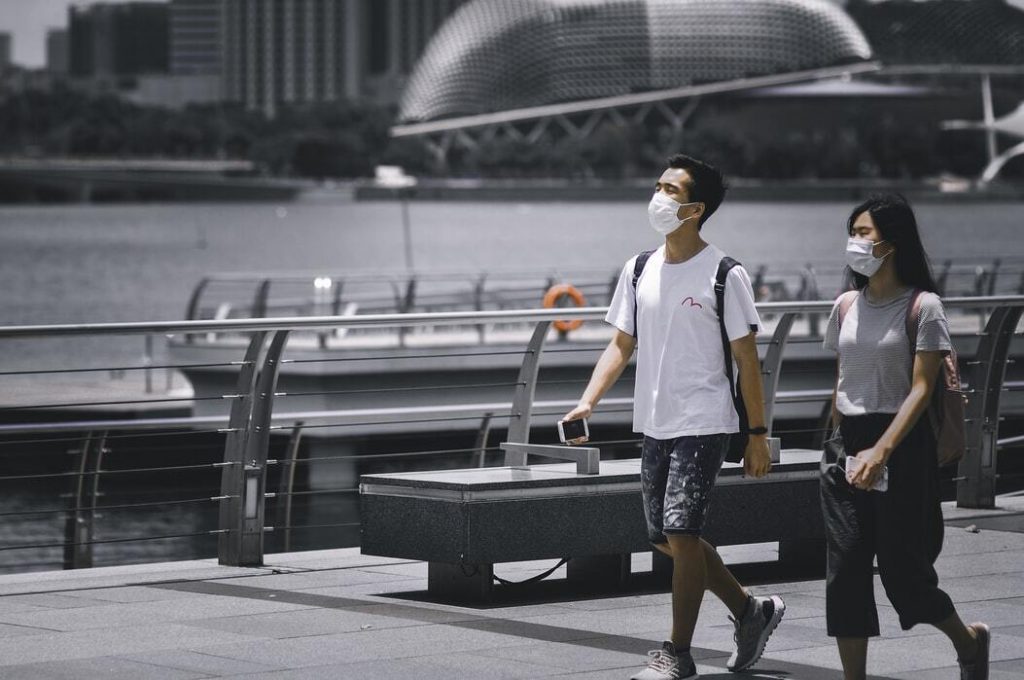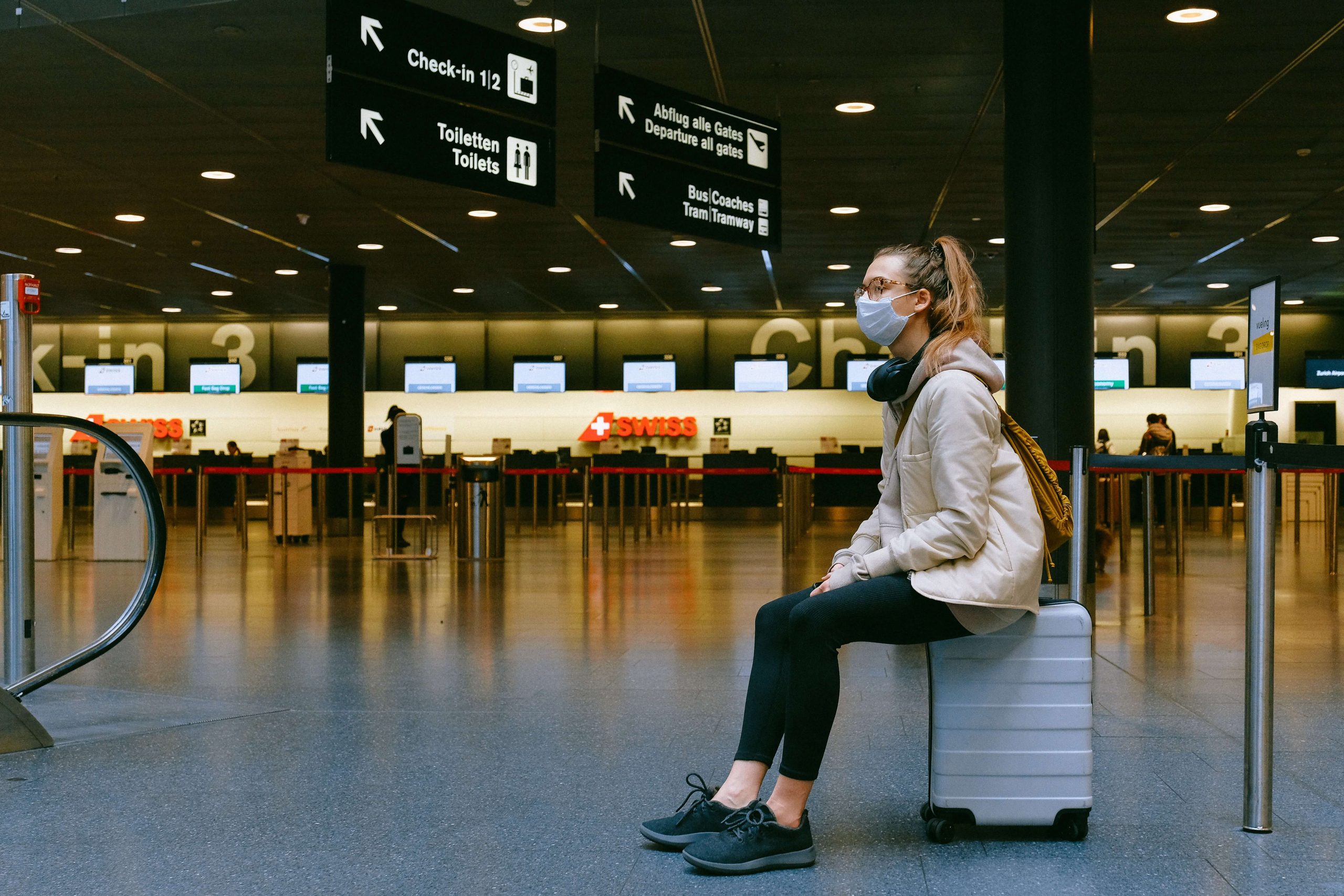If anyone comes to me and says they’re going insane from staying home for too long I won’t get surprised; it’s something we are all dealing with. But traveling during COVID has become easier nowadays as our knowledge and technology grows. Here we’re going over things to keep in mind when you’re traveling during COVID.
1. Keep Your Mask On!
Coronavirus is a vague yet-unknown virus, we might not know a whole lot about the virus itself. But if there’s one single thing we surely know about it, is that the virus is airborne. A very valid good way of fighting an airborne virus off is to wear masks to avoid inhaling the virus into our lungs. This is why, as for our first tip on traveling during COVID pandemic, we recommend and humbly ask of you to wear your masks. Whenever there’s – or there’s been – people a face mask comes in handy!
2. Distant Yourself
We’ve all heard of “Social Distancing“. The thing is – and we keep saying it – transmission is different than infection. Anyone could play a part in transmission of the virus without being infected. The cloths you wear could carry the virus around. This is exactly why experts keep talking about social distancing. Keep your distant from other people when you’re traveling during COVID so everyone is safer!
3. Don’t Underestimate The Pandemic
If you’re traveling during COVID, you probably already took the risk. But never underestimate the virus. You might be exposed to the virus anywhere anytime. I’ve seen a lot of people – including myself – catching the virus without doing anything too crazy. As a matter of fact, scientists are still unsure about transmission of coronavirus.
Trust the Hotels!
Whether you’re staying at a hotel or hostel or anywhere else, trust the workers and the staff. They’re doing their best to keep you safe. In a world where working from home is a privilege not everyone has, these lovely people are going to work everyday to ensure your safety. We strongly advise you to trust the hospitality workers!
4. Understand the Restrictions for Traveling During COVID
When the pandemic first started going through everyone’s head I remember there was a grand panic trending. Lots of businesses were shut down, airlines and hospitality properties closed their doors to the public. But with the vaccines coming in nowadays the ghost town days are over! Airlines are back to work again, quarantined properties are opening up again and cities are back on their feet.
However we’ve heard news about countries taking precautions and setting new waves of restrictions for traveling during COVID. What we recommend is, before you travel, ask the airline staff, hotel staff and basically anyone who you think has the information about the restrictions. Especially for international travels and even for domestic travels, make sure you are authorized to travel. The restrictions differ from country to country.

5. Choose Where You’re Staying Before Traveling
We believe Airbnbs could play an important role when it comes to traveling during COVID. It just makes perfect sense how Airbnb could weather the COVID storm – to us at least – however it’s up to your own judgement to choose the best property type to stay in.
As mentioned before we advise you to put your trust in fellow hospitality workers, they are doing their best to keep their property clean and ready for you. However make sure they can actually guarantee your safety. There’s been reports of hotels going under quarantine on event of an outbreak.
6. Vaccine Passports are Becoming a Thing, Know More About Them
Ever since vaccines have become a thing, there’s been various rumors about vaccine passports. Many countries are seriously considering issuing vaccine passports to inoculated individuals. What it really offers is regulated protected properties in which every person is already vaccinated. Imagine going to a hotel where you can socialize with people all around the world without wearing a mask! However, at the time of writing this article, I can see there’s a lot of controversy around this topic. Many people argue vaccine passport is probably not an all-good news.
7. Consider Going Contactless
Currently the travel industry is growing so fast regardless of the pandemic. Even though not a whole lot of people can travel during COVID, the technology show must always go on! Nowadays, the smart lock technology allows you to check-in, book a hotel room, request a delivery and do much more without touching anything other than your phone. Whether you’re a traveler looking for a better contactless experience, or a property owner looking to improve your property, Goki offers you a fully automated contactless experience from check-in up until check-out!

8. Vaccines & Tests
The two types of precautions you can take prior to traveling during COVID. Even in some countries traveling is specifically restricted to vaccinated or tested people. In other encounters it could be the ace card you pull out to assert authority! Jokes aside, we’re going to talk about how these two could help you travel during COVID.
Vaccines: Light at the End of the Tunnel
When I first heard of vaccines being handed out I immediately pictured the pandemic is finally over with. However as we see, not all the people have received the vaccine yet. We already covered how vaccine passports might actually become mandatory in some countries. But even if it is, there’s yet a lot of unknowns about the vaccine. We don’t know if the vaccine prevents the transmission or not. As a matter of fact, the vaccine immunizes you to the virus but you might still carry the virus, even in your cloths!
COVID Test: Making Sure You’re Safe and Sound
What you need to know about COVID tests is that there’s more than a single test. Even if a hotel staff says it’s mandatory to take a test before checking-in, make sure the communication is clear and proper. If you take the wrong test, there’s the chance for your result to come back in positive even though you don’t really have the virus. Let’s not go too technical here, all you have to do when it comes to COVID testing, is make sure you’re taking the proper test. And make sure it is mandatory or not to take the test.



